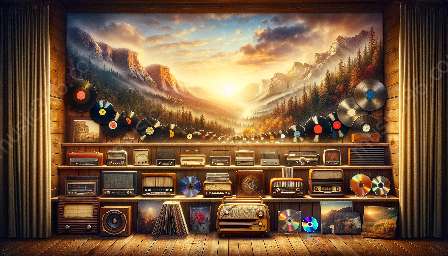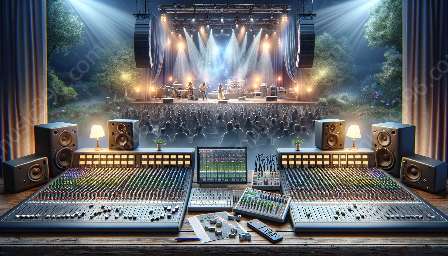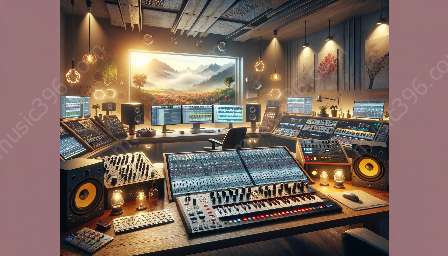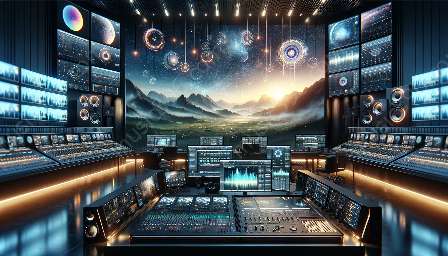Music distribution has evolved significantly as a result of emerging technologies, revolutionizing the way music is marketed and distributed. These technologies have had a profound impact on the music industry, offering new opportunities for artists and record labels to connect with their audience and generate revenue.
From online streaming platforms to digital audio formats, the music distribution landscape has undergone a dramatic transformation. This article explores the emerging technologies shaping the future of music distribution, with a focus on how these advancements are impacting CD and audio formats, as well as the overall marketing strategies employed in the industry.
The Rise of Streaming Platforms
One of the most significant developments in music distribution is the rise of streaming platforms. Services like Spotify, Apple Music, and Tidal have made music more accessible than ever, allowing consumers to stream millions of songs on demand. These platforms have fundamentally changed the way music is distributed, offering a subscription-based model that provides consumers with access to a vast library of music.
For artists and record labels, streaming platforms have become a vital channel for music distribution. These platforms offer opportunities for artists to reach a global audience and generate income through streams. The shift towards streaming has led to new marketing and distribution strategies, as artists and labels prioritize digital promotions and exclusive releases to capture the attention of streaming platform users.
Virtual Reality and Immersive Experiences
Another emerging technology that is shaping the future of music distribution is virtual reality (VR). Virtual reality has the potential to transform the way music is experienced, offering immersive live concert experiences and interactive music videos. Artists are tapping into VR technology to create unique and engaging experiences for their fans, allowing them to participate in virtual concerts and explore interactive music content.
With the rise of VR, music distribution and marketing strategies are adapting to incorporate immersive experiences. Artists and labels are exploring virtual reality as a new avenue for engaging with their audience and creating memorable experiences that go beyond traditional audio formats. As VR technology continues to evolve, we can expect to see more innovative applications of VR in music distribution and marketing.
Blockchain and Decentralized Distribution
Blockchain technology has also emerged as a disruptive force in music distribution. With its emphasis on transparency and decentralization, blockchain has the potential to revolutionize the way music royalties are managed and distributed. By leveraging blockchain, artists and rights holders can ensure fair compensation for their work and gain greater control over the distribution of their music.
Decentralized music distribution platforms are using blockchain to create new revenue opportunities for artists and disrupt the traditional music industry model. These platforms offer a direct channel for artists to connect with their audience, bypassing traditional intermediaries and empowering artists to take control of their music distribution and marketing.
Enhanced Audio Formats and Spatial Audio
In the realm of CD and audio formats, emerging technologies are transforming the way music is consumed. Spatial audio, for example, has gained traction as a cutting-edge audio format that offers a more immersive listening experience. With advancements in spatial audio technology, music enthusiasts can enjoy a more spatially immersive and captivating audio experience, creating new opportunities for artists to deliver unique sonic experiences.
Furthermore, advancements in high-resolution audio formats and audio processing technologies have expanded the possibilities for delivering high-quality audio to listeners. These advancements have influenced the marketing strategies employed in the music industry, as artists and labels leverage enhanced audio formats to differentiate their offerings and cater to audiophiles who seek premium listening experiences.
Personalized Recommendations and AI-Powered Marketing
Artificial intelligence (AI) has become a driving force in music distribution and marketing. Streaming platforms and music services are leveraging AI algorithms to deliver personalized music recommendations to listeners, enhancing the discovery and engagement with new music. By analyzing user behavior and preferences, AI-powered recommendation engines can help promote music based on individual tastes, thereby driving deeper connections between listeners and artists.
Moreover, AI has paved the way for data-driven marketing strategies, enabling record labels and artists to identify and target specific audience segments with tailored promotional campaigns. With AI-powered analytics, music industry stakeholders can gain valuable insights into consumer behavior and market trends, informing their marketing decisions and optimizing their music distribution strategies.
The Future of Music Distribution and Marketing
As emerging technologies continue to shape the future of music distribution, the music industry is undergoing a profound transformation. The evolution of streaming platforms, virtual reality experiences, blockchain-powered distribution, enhanced audio formats, and AI-driven marketing has redefined the dynamics of music distribution and consumer engagement.
For CD and audio formats, these emerging technologies have ushered in new possibilities for delivering high-fidelity, spatially immersive audio experiences. The convergence of technology and music distribution is driving innovation in marketing strategies, as industry players strive to leverage these advancements to capture the attention and loyalty of music enthusiasts.
Ultimately, the future of music distribution is intertwined with the advancements in digital technology, paving the way for a dynamic and experiential journey for both artists and music consumers.






























